Beneath the HIVe: Unifying at the Quilting Bee
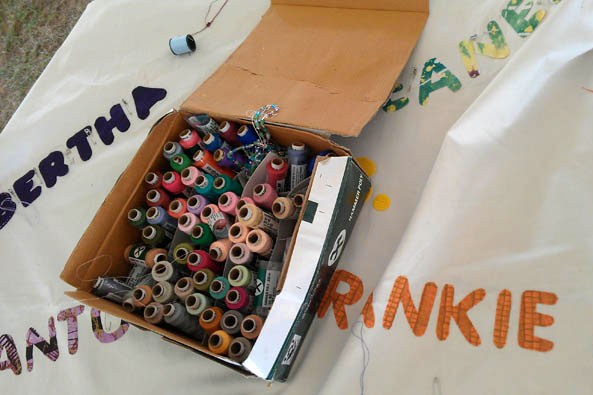
On the far edge of the Festival, a wide white tent shelters those deeply immersed in their work, stitching memories onto bright cloth. Over the past two weeks, a Quilting Bee workshop has sprung up under this tent, dedicated to helping the public create 3′ x 6′ panels to add to The AIDS Memorial Quilt. Using needles, threads, an array of textiles and any number of quilting techniques, the workshop is an opportunity for the public to work with others, no matter their level of experience or stitching history.
The workshop provides the public with all of the materials to get a panel maker started, and it is just one in a series of workshops around the country that The NAMES Project hosts all year round. AIDS Quilt curator Jada Harris says, “We don’t want there to be any impediments to anyone making their panel. If you are unable to make one, either due to your sewing ability or it’s just emotionally too much, we can still help you get it done. Every process is different for different people, and most panel makers had never sewn before. You want glue, we can glue. You want paint, we can paint.”
Many of the Quilting Bee’s most dedicated volunteers work regularly for Call My Name, a NAMES Project program that fosters the creation of new panels by African Americans in honor of their friends, family, and community members who have died of AIDS. According to Harris, fewer than 400 of the 47,000 panels in The Quilt honor African Americans, despite the fact that approximately 42 percent of those diagnosed with AIDS in the U.S. are Black.
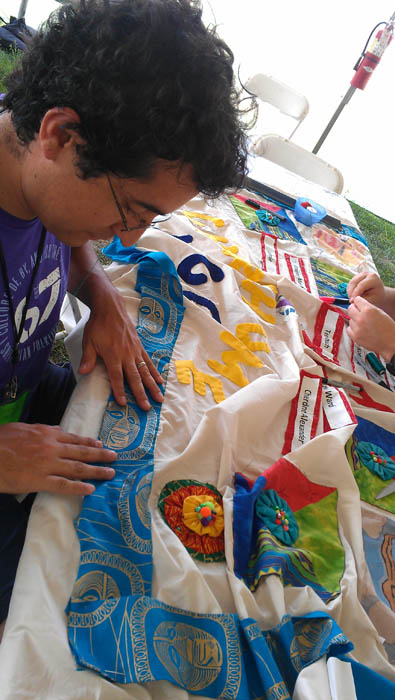
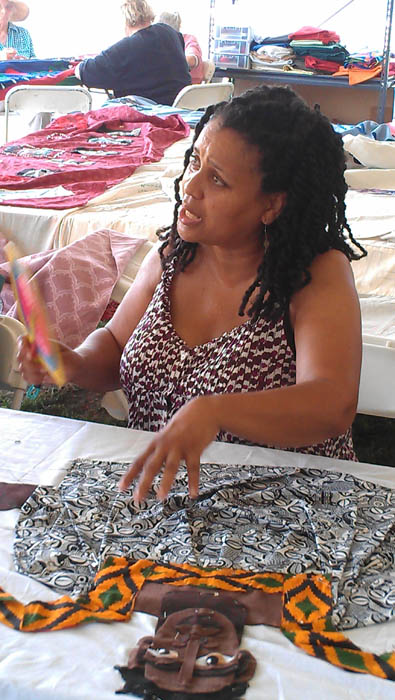
According to the Centers for Disease Control and Prevention’s 2008 statistics, 23.8 percent of the AIDS cumulative cases are Latino and 2.8 percent are Asian Pacific. While Asian Pacific Islander Americans have the lowest percentage, in some ways, this may contribute to keeping the subject taboo in our communities. For many people of color in the U.S., the stigma of being HIV-positive is even further complicated by cultural pressures, generational gaps, homophobia, and even language barriers.
I myself lost a beloved uncle in the early 90s to AIDS, and although my immediate family was aware of his status (and largely supportive of him and his partner), the cause of his death was not mentioned at the funeral. It has been difficult to navigate dialogue about this in the following decades particularly because AIDS-related deaths in the Japanese American community are so rare and the subject is burdened with conceived notions of shame.
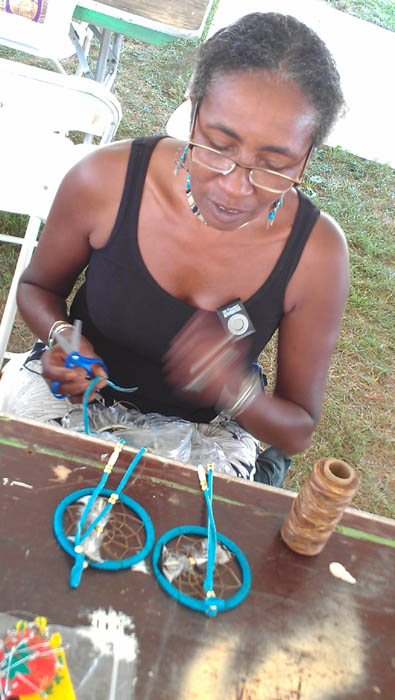
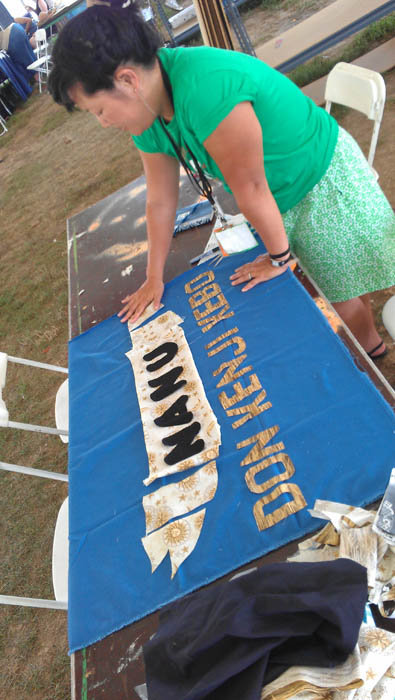
It is the act of remembering—not alone, but together—that has allowed me to find a place at the Quilting Bee, to piece together feelings and to celebrate an awareness of my uncle’s life by starting my own panel today. In just an afternoon’s worth of work, we have gathered as strangers, yet with so much in common in our souls; and we talk and sew together on a task that once seemed so lonely and impossible.
“This goes back to the day and the root of why these things used to take place,” said panel maker Michelle “Mo” Moore, who is visiting from Seattle. “Quilting Bees were a way to commune with each other—to sit with people, to talk, share stories. Art is the great unifier. I’ve seen that it’s very cathartic. I’ve watched someone come in, put a few stitches in, and as they contemplate the action, they cry.” Moore, who is in D.C. visiting her son, hadn’t come expecting to get involved, let alone begin work on a quilt panel in honor of her late friend Donald Dixon. But for the past four days, it’s all she’s cared about doing.
Come to the Quilting Bee. Build with fabric. Share. Stitch. Grow.
Patricia Wakida is a writer and historian based in Boyle Heights, a neighborhood of Los Angeles, California.

